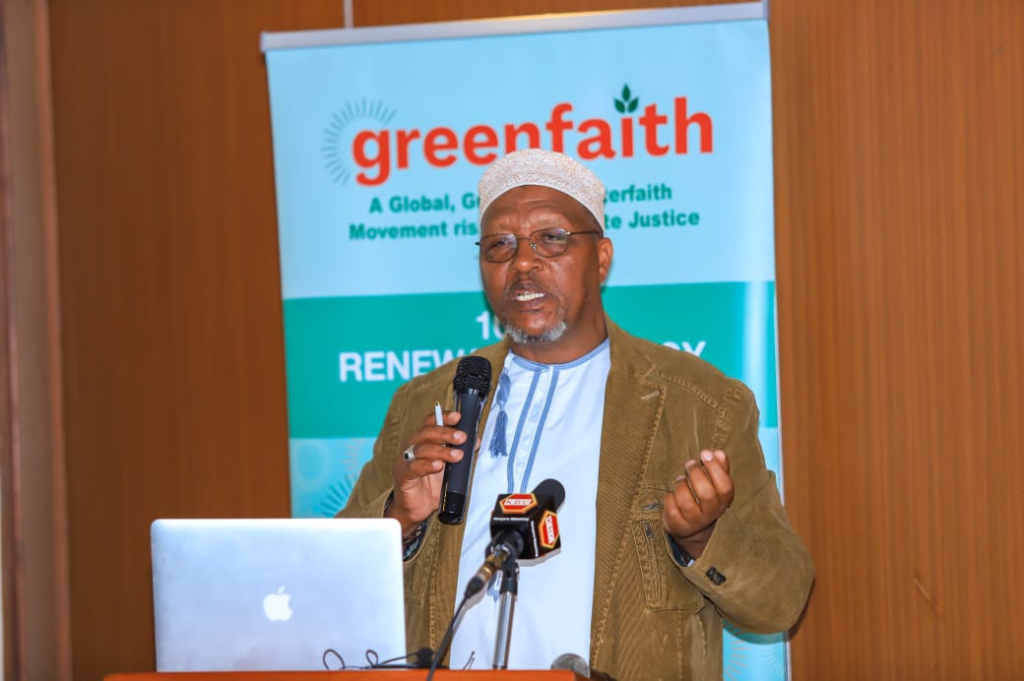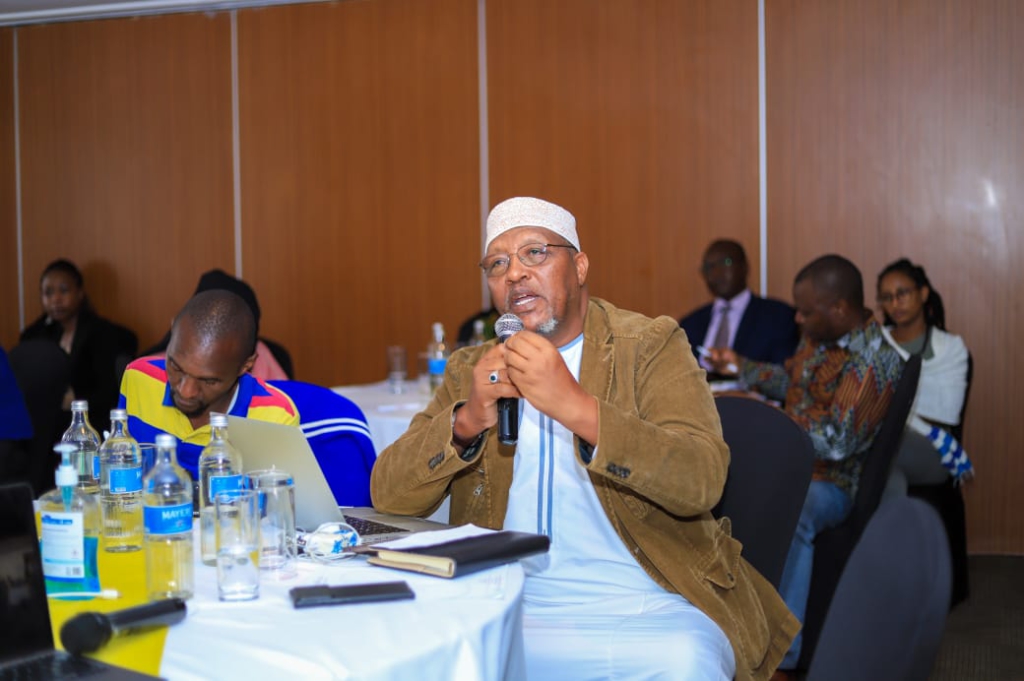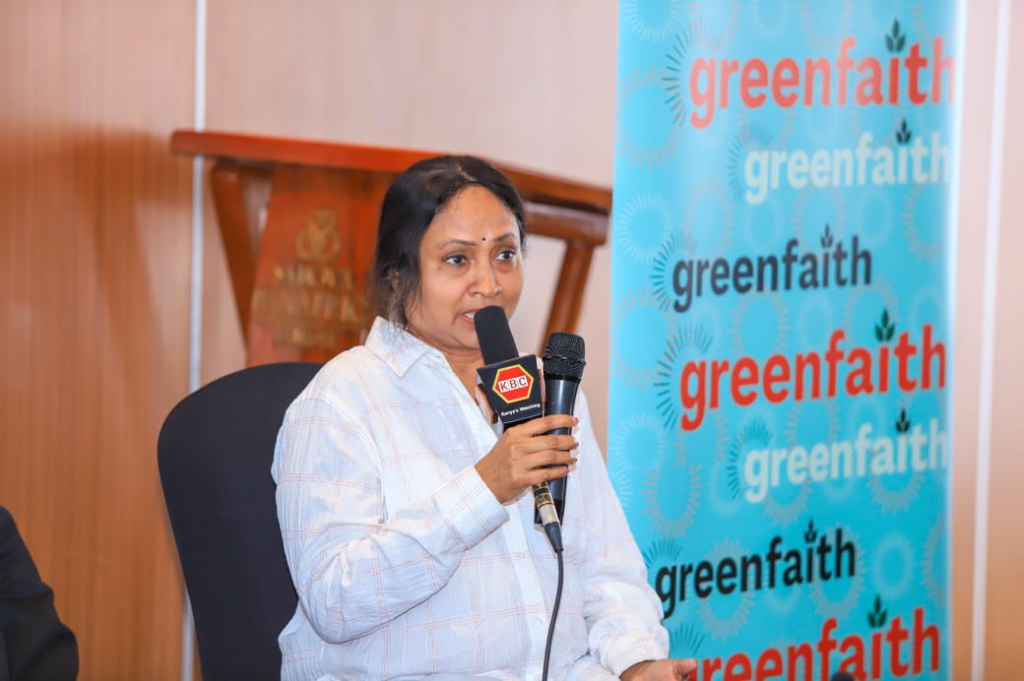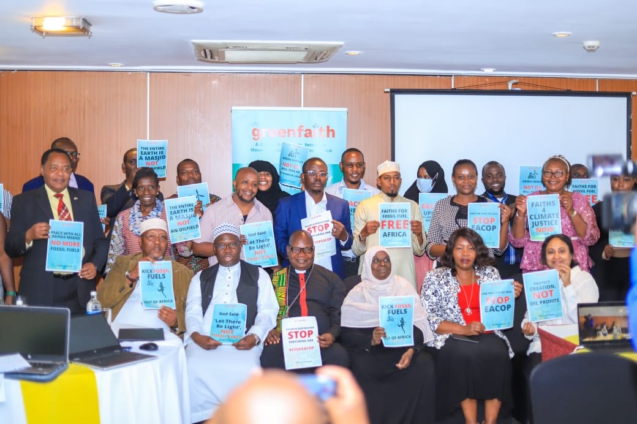Some African religious leaders have demanded faster access to renewable energy that doesn't affect the environment or Africans.
The clergy asked African governments to oppose any attempts by Global North countries and companies to implement new fossil fuel projects, like the East African Crude Oil Pipeline (EACOP), across the continent at a time when the rest of the world is phasing them out.
At a "Religious Leaders Roundtable on (EACOP)" event, hosted by GreenFaith in Nairobi, Kenya, dozens of clerics and religious leaders from many faiths, including Hindu, Muslim, and several Christian denominations, said this is right time to demand access to clean energy.
The clergy was unified in their appeals for a quicker, more rapid just transition to renewable energy and the phase-out of fossil fuel projects in Africa despite their diversity of faiths and ideologies.
Given that the alternative, more renewable energy sources have not been adopted, they said there was no reason for approving new fossil fuel projects in Africa, or East Africa for that matter.

In his keynote address, Sheikh Ibrahim Lithome of the Interreligious Council of Kenya said, "there is no justification for allowing new fossil fuel projects in Africa, or East Africa for that matter when the alternative more renewable energy sources have not been exploited. We must instill proper and sustainable use of Earth’s resources without hurting its occupants. This way we will be fulfilling the Earth’s stewardship role assigned to us by the Creator."
According to Sheikh Lithome, faith and religious leaders should take the lead in denouncing the acts of governments that grant licenses to these corporations, giving them the direct ticket to pollute lands, displace communities, and increase greenhouse gas emissions.
"This is our moral duty, politics aside! Fossil fuel has no place in God’s creation," he said.

He inquired, “Is Nairobi River, for instance, as clean as it was given to us by God? We have a responsibility to provide guidance on how to take care of the environment given to us by God. As religious leaders, if you cannot take action to change ills, at least use your voice. We can do the same in the case of the EACOP."
The Executive Director of Muslims for Human Rights, Omar Elmawi, condemned the intentional exploitation of Earth's resources as well as the use of Africa's ambition for industrialization as a pretext for establishing new fossil fuel projects on the continent.
He further condemned EACOP, which plans to use a heated pipeline to go 1,445 kilometers from an oil well in Uganda to Tanzania's Tanga Port.
“It is true East Africa wants to develop. But at what cost? EACOP risks tripling East Africa’s carbon emissions and leaving the continent dirtier and poorer after the stakeholders cart away the profits. It is not for the good of Africa, it is for the greed of the elite, trying to line their pockets, at the expense of the planet and the community. If it were so, why should more than 1,000 families be displaced, and have their rich productive agricultural lands taken away?” he inquired.
The religious leaders urged African countries to exercise caution before entering into agreements that might be detrimental to the continent's population and biodiversity.
“Not all that glitters is gold. We must not accept anything that will adulterate the earth in the name of helping Africa to develop,” said Pastor Sam Kaloki of the Gospel Confirmation Centre.
The gathering was convened in order to raise awareness of the global Fossil Fuels Non-Proliferation Treaty (FFNPT) as the world's attention turns to COP27 in Egypt in November.
Muslim faithful held daylong prayers in order to ask God for help in easing the pain of families losing loved ones and livestock to starvation. They were weary of the losses and deaths communities in some parts of Kenya, particularly in Kilifi and Garissa, had experienced.
“It is this notion that we are not to blame for the climate-induced water and other stresses that the religious leaders want made clear,” said Abdirizak Maalim, who came from Garissa.
“A lot of our faithful are sometimes driven to think that God is punishing them through drought or flooding, yet those most responsible for their sufferings are the developed nations that caused global warming through their fossil fuels powered development and are still starting oil and gas projects in Africa,” said Reverend Elias Otieno Agola of the Presbyterian Church.

Sujarta Kotamraju of the Hindu Council of Kenya later spoke on a panel about the earth's sacredness and the need for everyone to be its steward.
“If you treat the Earth well, it will treat you the same. The reverse is also true,” she said.
Reverend Agola, who said to have grown up in the Kisumu County of Kenya near the River Nyando, where people could drink and fish directly from the natural resource, shared their thoughts.
“Since humans started interfering with the river, dumping and polluting it, even the fish have disappeared and we cannot drink from the river.”
Women support calls to stop anyone who harms the environment, according to Sabina Ng'ang'a of the Kenya Women of Faith Network.
"This is why, Mr President William Ruto, we must not return to the shamba system. Dear women, let us start small, but start now, to save the environment.”
Collins Otieno of Dorcas Aid used the opportunity to urge Africans to consider local cases and be forthright about the necessity of immediate action to save lives.
He said the evidence was clear that the impact of climate change is ravaging Africa.
"What science do you need when drought-stricken people and animals in Kilifi, Marsabit and Garissa are dying, and others are being swept by floods in Uganda or Nigeria?” he posed, and added: “And did you know that there are religious organisations that invest in fossil fuels? They are part of this problem. Faith at work demands that we do what is morally right."
The GreenFaith Co-Director for Organizing, Meryne Warah, posed the following question as the meeting came to a close: “Oil projects such as EACOP happen where indigenous communities and usually very poor people live. But why should such a project be militarised? Who needs security between the people and resources? Africa needs to develop, but must this happen at the expense of our people, social fabrics, heritage, health or wellbeing?”
The time, according to Sheikh Lithome, had arrived to remind national and municipal authorities of their moral obligation to treat the Earth and all living things on it with the respect they deserve.
Latest Stories
-
Paris 2024: Opening ceremony showcases grandiose celebration of French culture and diversity
2 hours -
How decline of Indian vultures led to 500,000 human deaths
3 hours -
Paris 2024: Ghana rocks ‘fabulous fugu’ at olympics opening ceremony
3 hours -
Trust Hospital faces financial strain with rising debt levels – Auditor-General’s report
4 hours -
Electrochem lease: Allocate portions of land to Songor people – Resident demand
4 hours -
82 widows receive financial aid from Chayil Foundation
4 hours -
The silent struggles: Female journalists grapple with Ghana’s high cost of living
4 hours -
BoG yet to make any payment to Service Ghana Auto Group
4 hours -
‘Crushed Young’: The Multimedia Group, JL Properties surprise accident victim’s family with fully-furnished apartment
5 hours -
Asante Kotoko needs structure that would outlive any administration – Opoku Nti
5 hours -
JoyNews exposé on Customs officials demanding bribes airs on July 29
6 hours -
JoyNews Impact Maker Awardee ships first consignment of honey from Kwahu Afram Plains
7 hours -
Joint committee under fire over report on salt mining lease granted Electrochem
7 hours -
Life Lounge with Edem Knight-Tay: Don’t be beaten the third time
7 hours -
Pro-NPP group launched to help ‘Break the 8’
8 hours

